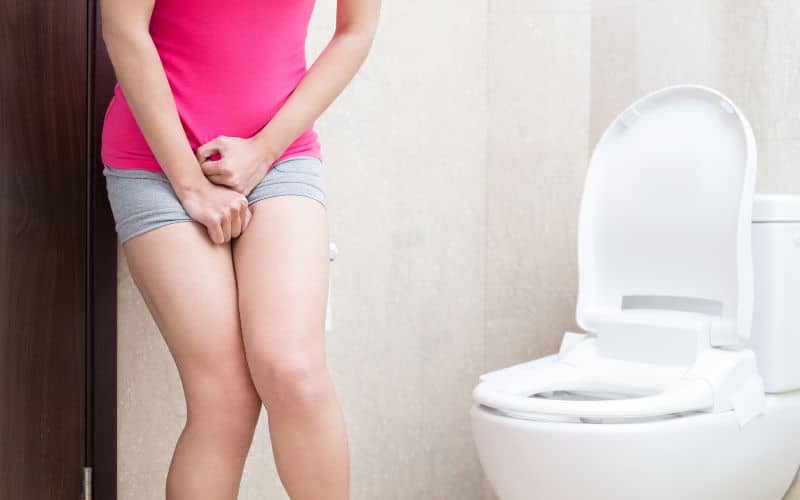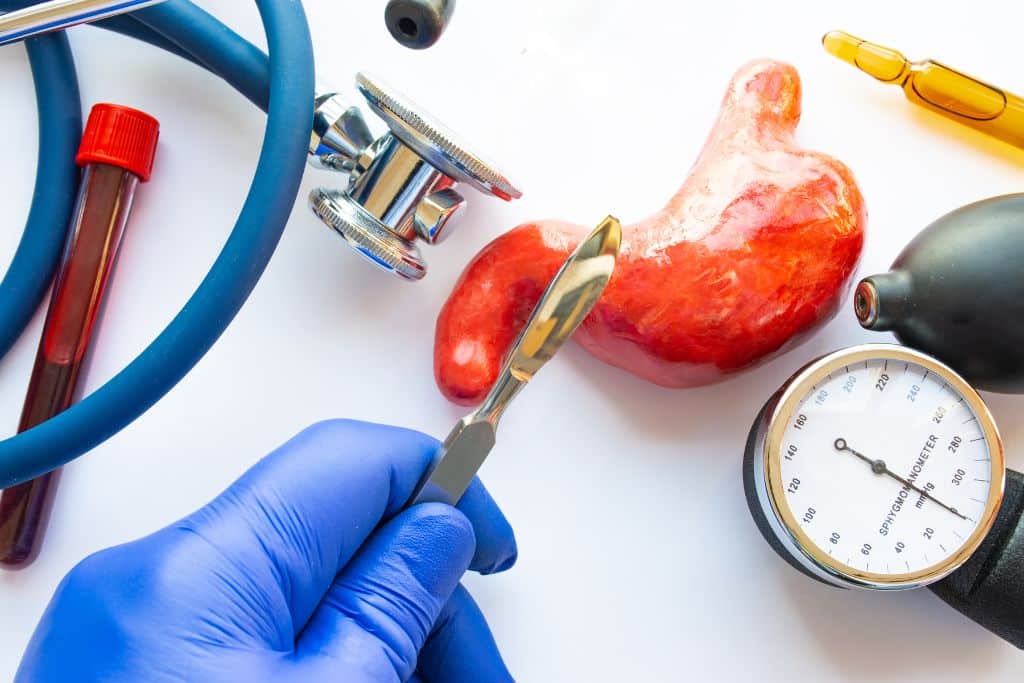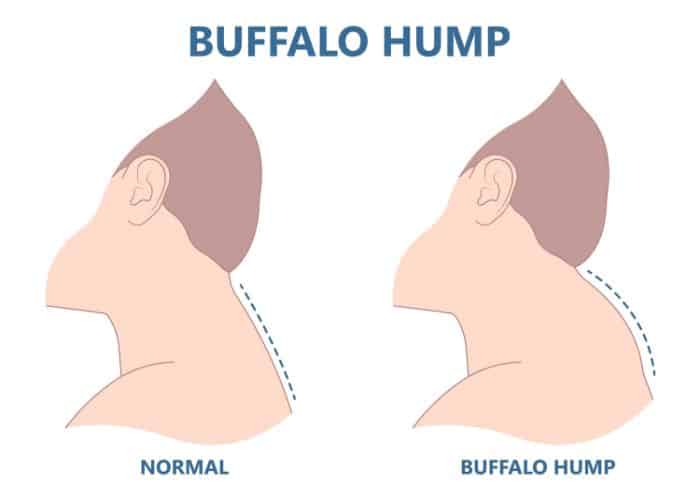Losing weight is a common goal for many people, and it's no secret that weight loss can have a variety of effects on the body. One effect that people may not be aware of is the connection between weight loss and urination. Does losing weight make you pee more? The answer is yes, and there are several reasons why.
One reason for increased urination during weight loss is due to the body's metabolic processes. As the body burns fat for energy, it produces waste products that need to be eliminated. This waste is processed by the kidneys and excreted as urine. As a result, people may find themselves needing to use the restroom more frequently during weight loss.
Another factor that can contribute to increased urination during weight loss is the amount of water that people consume. Drinking more water is often recommended as part of a healthy weight loss plan, and this can lead to more frequent urination. Additionally, some weight loss supplements or medications may have a diuretic effect, which can also cause increased urination.
Contents
The Connection Between Weight Loss and Urination

Losing weight can have an impact on how often you need to urinate. While some people may notice an increase in urination frequency, others may not experience any changes at all. The reason behind this is simple: when you lose weight, your body gets rid of excess fluids and waste products, which can lead to increased urination.
One of the main reasons why weight loss can cause increased urination is due to the breakdown of fat cells. When your body burns fat for energy, it produces waste products that need to be eliminated. As a result, your kidneys have to work harder to filter out these waste products, leading to an increased need to urinate.
Another reason why weight loss can cause increased urination is due to changes in your diet. If you're following a low-carb or ketogenic diet, you may notice an even larger increase in urination. This is because these diets trigger a high level of fat loss, which in turn leads to increased waste production and a higher need for urination.
It's important to note that while increased urination can be a side effect of weight loss, it's not a guaranteed outcome for everyone. Factors such as age, gender, and overall health can all play a role in how your body responds to weight loss.
In summary, weight loss can cause increased urination due to the breakdown of fat cells and changes in your diet. While this is a normal side effect of weight loss, it's important to stay hydrated and monitor your urination patterns to ensure that you're not experiencing any other health issues.
Factors Influencing Increased Urination During Weight Loss
There are several factors that can influence increased urination during weight loss. Here are some of the most common factors:
Hydration Levels
One of the most significant factors that can influence increased urination during weight loss is hydration levels. When you are trying to lose weight, you may drink more water to stay hydrated and boost your metabolism. Drinking more water can help you feel fuller and prevent overeating, but it can also lead to more frequent urination.
Increased Metabolism
Another factor that can influence increased urination during weight loss is an increase in metabolism. When you lose weight, your metabolism increases, which means that your body burns more calories than it did before. This increased metabolism can lead to increased waste production, which in turn can lead to more frequent urination.
Dietary Changes

Dietary changes can also influence increased urination during weight loss. When you change your diet, you may be consuming more foods that have diuretic properties. Diuretics are substances that promote the production of urine, which can lead to more frequent urination. Some examples of diuretic foods include celery, asparagus, and watermelon.
Additionally, when you reduce your carbohydrate intake, your body will start to burn more fat for energy. This process, known as ketosis, can also lead to increased urination. As your body burns fat, it produces ketones, which are excreted in the urine.
Overall, increased urination during weight loss is a common and normal occurrence. It is usually a sign that your body is working hard to eliminate waste and toxins. However, if you experience excessive or painful urination, it is important to speak to a healthcare professional to rule out any underlying medical conditions.
The Role of Kidneys in Weight Loss
The kidneys play an essential role in maintaining the body's fluid balance and eliminating waste products from the body. When we lose weight, our body generates waste products that need to be eliminated by the kidneys. As a result, weight loss can affect kidney function and urine output.
One of the primary ways that weight loss affects the kidneys is by changing the concentration of electrolytes in the body. Electrolytes are minerals that help regulate fluid balance, nerve function, and muscle contractions. When we lose weight, the concentration of electrolytes in our body can become unbalanced, which can lead to dehydration and other health problems.
Another way that weight loss affects the kidneys is by increasing urine output. When we lose weight, our body breaks down fat cells to use as energy. This process generates waste products that need to be eliminated from the body. As a result, the kidneys may produce more urine to help eliminate these waste products.
It's worth noting that while weight loss can affect kidney function and urine output, it's generally not a cause for concern. In fact, losing weight can have many health benefits, including reducing the risk of chronic diseases like diabetes and heart disease. However, it's important to maintain a healthy balance of electrolytes and fluids in the body to avoid dehydration and other health problems.
Potential Risks of Increased Urination
While increased urination can be a natural side effect of weight loss, it's important to note that excessive urination can lead to potential risks and complications. Here are a few potential risks to keep in mind:
Dehydration

Frequent urination can lead to dehydration, especially if you're not drinking enough fluids to replace what you're losing. Dehydration can cause a range of symptoms, including headaches, dizziness, fatigue, and dry mouth. It's important to make sure you're drinking enough water throughout the day, especially if you're losing weight through exercise or a low-carb diet.
Electrolyte Imbalance
When you urinate frequently, you lose not only water but also essential electrolytes such as sodium, potassium, and magnesium. An electrolyte imbalance can cause a range of symptoms, including muscle cramps, fatigue, and irregular heartbeat. To avoid an electrolyte imbalance, make sure you're consuming enough electrolytes through your diet or supplements.
Urinary Tract Infections
Frequent urination can increase your risk of developing urinary tract infections (UTIs), especially if you're not practicing good hygiene. UTIs can cause a range of symptoms, including pain and burning during urination, lower abdominal pain, and fever. To reduce your risk of UTIs, make sure you're practicing good hygiene, including wiping from front to back, urinating after sex, and drinking plenty of fluids.
Kidney Problems
In rare cases, excessive urination can be a sign of kidney problems, such as kidney disease or diabetes. If you're experiencing excessive urination along with other symptoms, such as fatigue, nausea, or swelling in your feet and ankles, it's important to talk to your doctor to rule out any underlying health conditions.
Overall, while increased urination can be a natural side effect of weight loss, it's important to be aware of the potential risks and complications. If you're experiencing excessive urination or any other symptoms, it's important to talk to your doctor to rule out any underlying health conditions.
Preventing Dehydration

Dehydration can occur when you lose more fluids than you take in. This can happen during exercise, hot weather, or when following a low-carb diet. When you lose fluids, your body may produce less urine, leading to concentrated and darker urine. In some cases, dehydration can cause frequent urination as the body tries to get rid of excess toxins.
To prevent dehydration and maintain proper hydration levels, it is important to drink enough fluids throughout the day. The amount of water you need may vary depending on your age, gender, weight, and activity level. As a general guideline, aim to drink at least 8 cups (64 ounces) of water per day.
You can also increase your fluid intake by consuming foods that are high in water content, such as fruits and vegetables. Some examples include watermelon, cucumber, strawberries, and spinach.
Additionally, it is important to avoid or limit drinks that can dehydrate you, such as alcohol and caffeine. These drinks can increase urine production and lead to dehydration if consumed in excess.
Finally, make sure to listen to your body and drink water when you feel thirsty. Thirst is a sign that your body needs fluids, and ignoring it can lead to dehydration.
By following these simple tips, you can prevent dehydration and maintain proper hydration levels, which can help prevent frequent urination and other related health issues.
When to Consult a Doctor
Losing weight can have various effects on the body, including changes in urination patterns. While some increase in urination is normal during weight loss, it is important to know when to consult a doctor. Here are some signs to look out for:
- Excessive urination: If you find yourself urinating more frequently than usual, especially if it is accompanied by other symptoms such as pain or discomfort, it is important to consult a doctor. Excessive urination could be a sign of an underlying medical condition, such as a urinary tract infection or diabetes.
- Blood in urine: If you notice blood in your urine, it is important to consult a doctor immediately. Blood in the urine could be a sign of a serious medical condition, such as bladder cancer or kidney stones.
- Difficulty urinating: If you experience difficulty urinating, such as a weak or interrupted stream, it is important to consult a doctor. Difficulty urinating could be a sign of an enlarged prostate gland or other medical conditions.
- Unexplained weight loss: If you are losing weight without trying and you are concerned about it, it is important to consult a doctor. Unexplained weight loss could be a sign of an underlying medical condition, such as cancer or thyroid problems.
In general, it is important to pay attention to changes in urination patterns and to consult a doctor if you experience any unusual symptoms. Your doctor can help determine the underlying cause of your symptoms and recommend appropriate treatment.






